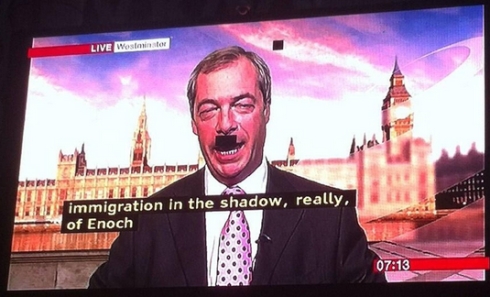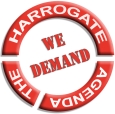 We do not have ‘global government’. There is no such thing.
We do not have ‘global government’. There is no such thing.
We do however have ‘global governance’. This is all too real.
Most people in the UK and across Europe do not see or even realise the existence of global governance, because of its remote and distributed nature. All that is seen is the face of governance that advertises and promotes itself – such as the EU and national governments in capital cities. Increasingly, people are becoming familiar with the raft of diktats, regulations and laws that apparently spawn from the very visible EU and are implemented by national governments.
What is not understood is that most of what is handed down from the EU does not originate in Brussels and is not shaped in Brussels – it is handed down from global bodies that make up the system of global governance. The EU is only a proxy, a delivery mechanism if you will. While it governs a regional bloc of nation states, the EU takes its direction and instructions from global bodies, where the true power and influence truly rests. The development of this network of bodies, on which most individual countries are able to represent themselves and their interests, has trumped the EU to become this country’s real supreme governor.
Global governance has neutered the power of the supposedly mighty EU to such a degree, a truer description of it today is ‘Little Europe’.
As a consequence, and in direct contradiction of the mantra so often uttered by the Europhiles, the influence of EU member states has been sharply reduced on the world stage. The 28 EU member states do not have their own voice on the global bodies. The EU has one seat and speaks for all 28 at once, the EU negotiation position being a messy compromise of watered down competing EU member state interests.
This is in sharp contrast to countries such as Norway and Switzerland, which have their own seats on the global bodies and can advance their own national interests, undiluted and directly. So as regulations and laws are formulated by these bodies in their power centres, such as Geneva, Montreal and Basle among others, Norway and Switzerland have as much influence in shaping the regulations as the EU representatives, and substantially more than every EU member state, including the United Kingdom. All of which underlines the lie propagated by the Europhiles that countries like Norway have to implement what the EU tells it, without any say in what is handed down.
What does this mean for the UK?
In short, this country’s political class, which is trying to shackle this country to the EU middle man for political reasons, is waiving the opportunity to influence and direct input into the regulations and laws that are formulated at a level above the EU, and implemented by just about all of our trading partners.
Too much of what is decided does not suit British interests, but the UK’s capacity to shape these global regulations is hamstrung because instead of being at the top table and having influence, our politicians have given up our seat to the EU. So the UK instead sits on the floor, knowing what it wants from the menu, but letting someone else order for us what it thinks we should have and throwing us what has been cooked up, cold and part eaten.
The EU model of government is past its ‘use by’ date. The politicians are trying to tie us in to a system more than half a century old, that is now obsolete and detrimental to the interests and prospects of a nation such as the UK, with an economy and trading base that is among the biggest in the world. It’s a big world out there and the UK can play a big part in how it works. Instead, our blinkered politicians and their big business proxies want to keep us locked into Little Europe and its shrinking sphere of influence.
For political – and as this post shows, economic reasons – getting out of the European Union is an imperative. But it is not an end in itself. Freeing ourselves from the Brussels bureaucracy is only an enabler. It merely provides this country with an opportunity to have real influence, a direct role in governance and a big part in shaping the rules of trade and the standards for products and services.
If we want the UK, our country, to be more successful, if we aspire to realise more of our potential, then we need to leave Little Europe and its passe vision and structures behind. We need to rediscover our confidence and regain or independence. Only then can we stake our place in the world and develop trade and partnership agreements on our own terms.
Leaving the EU is the starting point for determining our future and improving our prospects. We have a choice, be part of Little Europe, or become Big Britain.
 The broadcast arm of the Guardian reported late last night that Labour’s shadow business secretary Chuka Umunna has confirmed the party will not promise to re-nationalise Royal Mail after it is privatised.
The broadcast arm of the Guardian reported late last night that Labour’s shadow business secretary Chuka Umunna has confirmed the party will not promise to re-nationalise Royal Mail after it is privatised.





















What’s on your Mind?